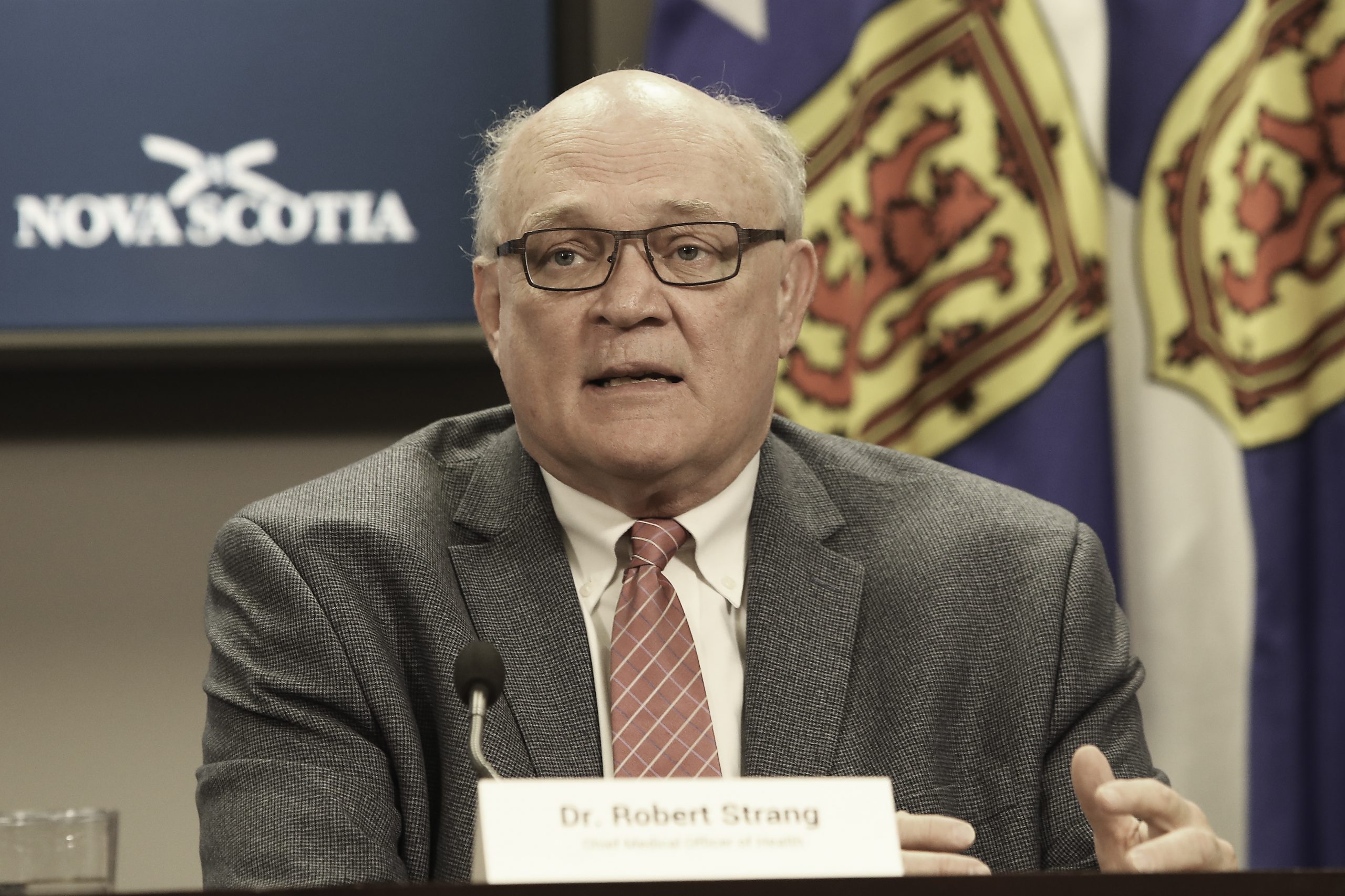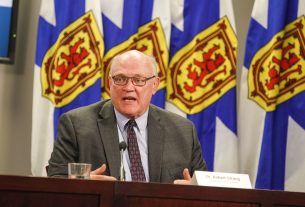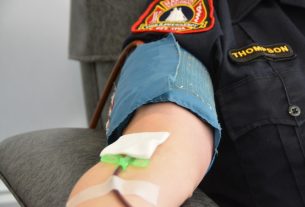****HEALTH/WELLNESS Media Release
110 New Cases of COVID-19, 155 Recoveries
—————————————————————-
Today, May 13, Nova Scotia is reporting 110 new cases of COVID-19 and 155 recoveries.
There are 83 cases in Central Zone, 12 in Eastern Zone, nine in Western Zone and six in Northern Zone.
Eight patients in a non-COVID unit at the Halifax Infirmary site of the QEII Health Sciences Centre have been identified as positive for COVID-19. They have been transferred to a COVID-19 unit. The other patients in the non-COVID unit have tested negative and are being closely monitored. As a precaution, Nova Scotia Health Authority is testing staff and doctors who have worked in the unit.
There is community spread in Central Zone. The Eastern, Northern and Western Zones continue to be closely monitored for community spread. Public health has cleared the backlog of positive cases and resumed normal processes for contacting cases and contacts.
“I am pleased that case numbers are not rising in Central Zone where the outbreak has been most serious,” said Premier Iain Rankin. “We all must keep at it to ensure that we stop the spread of fast-moving variants. If you are feeling unwell, please stay home. By following the public health measures, we are working to keep each other safe.”
As of today, Nova Scotia has 1,572 active cases of COVID-19. There are 85 people in hospital, including 15 in ICU.
On May 12, Nova Scotia Health Authority’s labs completed 7,205 tests.
As of May 12, 402,733 doses of COVID-19 vaccine have been administered. Of those, 38,421 Nova Scotians have received their second dose.
“We are seeing early signs that our case numbers are declining, which is an indication that the restrictions that are in place are working,” said Dr. Robert Strang, Nova Scotia’s chief medical officer of health. “The cases we are seeing have fewer close contacts than cases in previous weeks. We’re headed in the right direction, so let’s keep up the good work by strictly adhering to the public health protocols.”
Since April 1, there have been 2,665 positive COVID-19 cases and five deaths. Cases range in age from under 10 to over 90. There are 1,088 resolved cases. Cumulative cases may change as data is updated in Panorama.
Travel within Nova Scotia:
Nova Scotians should remain as close to their home and community as possible, unless travel is essential for work, caregiving, necessary shopping or medical appointments, including vaccination appointments. In this instance, ‘community’ is defined as one’s municipality or county. Detailed information is available at http://novascotia.ca/coronavirus/restrictions-and-guidance/ .
Testing advice:
Nova Scotians with or without symptoms can book a test at http://covid-self-assessment.novascotia.ca/en for primary assessment centres across the province. Those with no symptoms are strongly encouraged to use pop-up sites if they are not showing symptoms but want to be tested.
More information on testing can be found at http://www.nshealth.ca/coronavirustesting
Anyone with COVID-19 symptoms is advised to self-isolate and book a COVID-19 test. Everyone they live with must also self-isolate until the person receives their first negative test result. If the test is positive, public health will advise everyone about what to do.
Anyone advised by public health that they were a close contact needs to complete a full 14-day quarantine, regardless of test results. If the close contact is symptomatic, everyone they live with must also self-isolate until the person receives their first negative test result. If the test is positive, public health will advise everyone about what to do.
Symptoms and self-assessment:
Nova Scotians should visit http://covid-self-assessment.novascotia.ca/ to do a self-assessment if in the past 48 hours they have had or are currently experiencing mild symptoms, including:
— fever (i.e. chills/sweats) or cough (new or worsening)
— sore throat
— runny nose/nasal congestion
— headache
— shortness of breath/difficulty breathing
People should call 811 if they cannot access the online self-assessment or wish to speak with a nurse about their symptoms.
Anyone with symptoms should immediately self-isolate and book a test.
Quick Facts:
— a state of emergency was declared under the Emergency Management Act on March 22, 2020, and extended to May 16, 2021
— due to an increased number of investigations, the exposure category (i.e., travel, close contact or under investigation) is not available by release time; a breakdown by zone identifying exposure categories will no longer be provided regularly
Additional Resources:
More information on COVID-19 case data, testing and vaccines is available at: http://novascotia.ca/coronavirus/data/
Nova Scotians can find accurate, up-to-date information, handwashing posters and fact sheets at: http://novascotia.ca/coronavirus
Businesses and other organizations can find information to help them safely reopen and operate at: http://novascotia.ca/reopening-nova-scotia
More information about public health text notifications of positive COVID-19 cases and close contacts is available here: http://www.nshealth.ca/news/public-health-begins-contacting-positive-covid-19-cases-close-contacts-text-message
More information on what is considered essential travel is available here: http://novascotia.ca/coronavirus/travel/#from-outside-atlantic-canada
Government of Canada: http://canada.ca/coronavirus or 1-833-784-4397 (toll-free)
The Mental Health Provincial Crisis Line is available 24/7 to anyone experiencing a mental health or addictions crisis, or someone concerned about them, by calling 1-888-429-8167 (toll-free)
Anyone needing help with a non-crisis mental health or addiction concern can call Community Mental Health and Addictions at 1-855-922-1122 (toll-free) weekdays 8:30 a.m. to 4:30 p.m.
Kids Help Phone is available 24/7 by calling 1-800-668-6868 (toll-free)
For help or information about domestic violence 24/7, call 1-855-225-0220 (toll-free)




